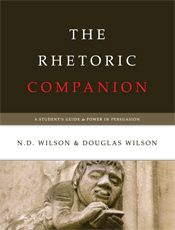Nov
26
2011

Spotted by Bojidar Marinov at Manoah’s Wife blog, and well worth sharing:
“It may very well be that the Communists, who are so anti-Christ, are closer to Him than those who see Him as a sentimentalist and vague moral reformer. The Communists have at least decided that if He wins, they lose; the others are afraid to consider Him either as winning or losing, because they are not prepared to meet the moral demands which this victory would make on their souls.
Continue reading
1 comment | tags: Bojidar Marinov, Communism, Judgment | posted in Apologetics, Christian Life, Quotes
Nov
6
2011

Part of the process of maturity for the Spirit-led Church is to go where no institution has gone before. The Jews crossed Land and Sea to make proselytes, their Temple a spring in the desert, but Christian mission was the over-tipping of the cleansing Laver, the baptism of the first century world. Of course, this was bound to have political consequences.
Continue reading
Comments Off | tags: Church History, Constantine, Ecclesiology, Peter Leithart, Postmillennialism | posted in Apologetics, Quotes
Oct
30
2011

Here’s the amazon description of Christian Smith’s recent book, The Bible Made Impossible.
Biblicism, an approach to the Bible common among some American evangelicals, emphasizes together the Bible’s exclusive authority, infallibility, clarity, self-sufficiency, internal consistency, self-evident meaning, and universal applicability. Acclaimed sociologist Christian Smith argues that this approach is misguided and unable to live up to its own claims. If evangelical biblicism worked as its proponents say it should, there would not be the vast variety of interpretive differences that biblicists themselves reach when they actually read and interpret the Bible.
Smith describes the assumptions, beliefs, and practices of evangelical biblicism and sets it in historical, sociological, and philosophical context. He explains why it is an impossible approach to the Bible as an authority and provides constructive alternative approaches to help evangelicals be more honest and faithful in reading the Bible. Far from challenging the inspiration and authority of Scripture, Smith critiques a particular rendering of it, encouraging evangelicals to seek a more responsible, coherent, and defensible approach to biblical authority.
Continue reading
2 comments | tags: Compromise, Hermeneutics, James Jordan, Peter Leithart | posted in Apologetics, Biblical Theology, Quotes
Aug
16
2011

“All those who hate me love death.” Proverbs 8:36
Ralph Smith notes that Western culture, particularly the United States, is suffering from a clash of two worldviews, two competing narratives that “vie for the right to define our world.”
A review of the biblical story already sets the biblical worldview against much modern thought. The theory of evolution, of course, contrasts sharply with the miraculous creation of the world in six days and man’s special creation as the image of God. The story of Adam and Eve as the original family stands in stark, if implicit opposition to all forms of racism, feminists’ denial of different sexual roles for male and female, homosexuality, and polygamy, to name only a few areas in which contemporary thought clashes with the Christian worldview.
Continue reading
Comments Off | tags: Culture, Evolution, Genesis, Ralph Smith | posted in Apologetics, Biblical Theology, Creation, Quotes
Jul
28
2011

The Bible so often seems to be very descriptive when we don’t want it to be (concerning architecture, for instance) and threadbare when it comes to the personal and illustrative detail we have been trained to enjoy and rely upon. When it comes to characterization especially, somehow the authors do a whole lot with very little. In fact, the unfathomable depth of what they do could not be achieved in any other way. What we moderns have often classed as primitive literature is in fact a literary world whose navigation requires one to keep one’s wits every step of the way. What is not said very often speaks volumes, especially when a passage is repeated with minor tweaks, additions or omissions. The Bible is most definitely smarter than we are, and its literary strategy can be traced back to Eden.
Robert Alter asks:
How does the Bible manage to evoke such a sense of depth and complexity in it representation of character with what would seem to be such sparse, even rudimentary means?
Continue reading
1 comment | tags: Genesis, Literary Structure, Robert Alter | posted in Apologetics, Quotes
Jul
17
2011

.
From The Power in Persuasion: An Interview with N.D. Wilson and Doug Wilson
How has our postmodern society affected the way we think about rhetoric and persuasion?
Postmodernism is really nothing new. It is just ancient sophistry in a rented tux. Lots of mouth and no muscle. But what we say in the book most directly collides with both modernism and its wee post when we discuss the nature of proof. Skip papa modernism’s crusade for humanistic omniscience and you skip postmodernism’s adolescent daddy issues.
Continue reading
Comments Off | tags: Doug Wilson, Evangelism, postmodernism | posted in Apologetics, Quotes
May
23
2011
In the Telegraph, Tim Stanley writes:
Evangelism is complex and nuanced. There are charismatics and fundamentalists, liberals and conservatives, black and white and racially mixed congregations. Its variation accords well with the free-market ethos of America, where each church is part of a thriving marketplace of ideas. Evangelicalism cannot be summarised in one glib column, or damned by the actions of one misguided branch. And while the federal government continues to break down and capitalism only entrenches divides, evangelicalism is a motor of social change.
Continue reading
Comments Off | tags: Postmillennialism | posted in Apologetics, Christian Life, Quotes
May
18
2011

“I am against religion because it teaches us to be satisfied with not understanding the world.” — Richard Dawkins
Well, there’s one statement I don’t understand, unless Mr Dawkins means every religion except Christianity. Modern science was born of a distinctly Christian worldview. This next quote is one I understand to a point, but only because Mr Dawkins has a broken worldview.
Continue reading
2 comments | tags: Atheism, Biblical worldview, Richard Dawkins | posted in Apologetics, Biblical Theology
May
2
2011
 .
.
“Modernity has for many moderns been a singularly joyless place… And no wonder: Continue reading
Comments Off | tags: Modernism, Peter Leithart, Philosophy | posted in Apologetics, Quotes
Nov
15
2010

“Screw the truth into men’s minds.” – Richard Baxter
Doug Wilson, (in an interview a while back concerning Collision, I think), spoke about “copiousness.” It is the Christian’s practice of picking up striking thoughts and illustrations from reading, and from life, for future use. He advocates keeping a Commonplace book to jot things down.
“Keep a commonplace book. Write down any notable phrases that occur to you, or that you have come across. If it is one that you have found in another writer, and it is striking, then quote it, as the fellow said, or modify it to make it yours. If Chandler said that a guy had a cleft chin you could hide a marble in, that should come in useful sometime. If Wodehouse said somebody had an accent you could turn handsprings on, then he might have been talking about Jennifer Nettles of Sugarland. Tinker with stuff. Get your fingerprints on it.” [1]
He describes an incident that makes this book (or blog or mental practice) sound more like keeping caches of ammunition near at hand. Continue reading
2 comments | tags: Chesterton, Doug Wilson, Ecclesiastes, Hermeneutics, Revelation, Spurgeon, Tabernacles | posted in Apologetics, Biblical Theology, Christian Life, Quotes


































